Editorial: When the booing has to stop
mainThere were boos on two successive nights at the Vienna State Opera.
The first was a lone protestor who had something against the (excellent) conductor.
The second was a spattering of hoots at Daniele Abbado’s fine design team for Trovatore. The Vienna rag Kurier this morning made the – brief and unrepresentative – booing their main headline.
Booing has been common in European opera houses ever since audiences were first affronted by modern and post-modern productions. In both of these case, the productions were elegant and unexceptionable.
But booing has become a habit for some operagoers – a bit of fun, a dare.
Actually, it’s a bore.
The people who do it would never stand up in a crowded restaurant and boo a dish they did not like.
If they did, they would be banned for life. Or get beaten up by the chef.
Everyone has a right to an opinion, of course. But opera houses need to take measures against persistent, disruptive, nuisance booers. A warning on first offence. A ban on second.
The opera house has their credit card numbers at the box-office and it knows where they sit.
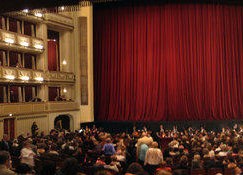

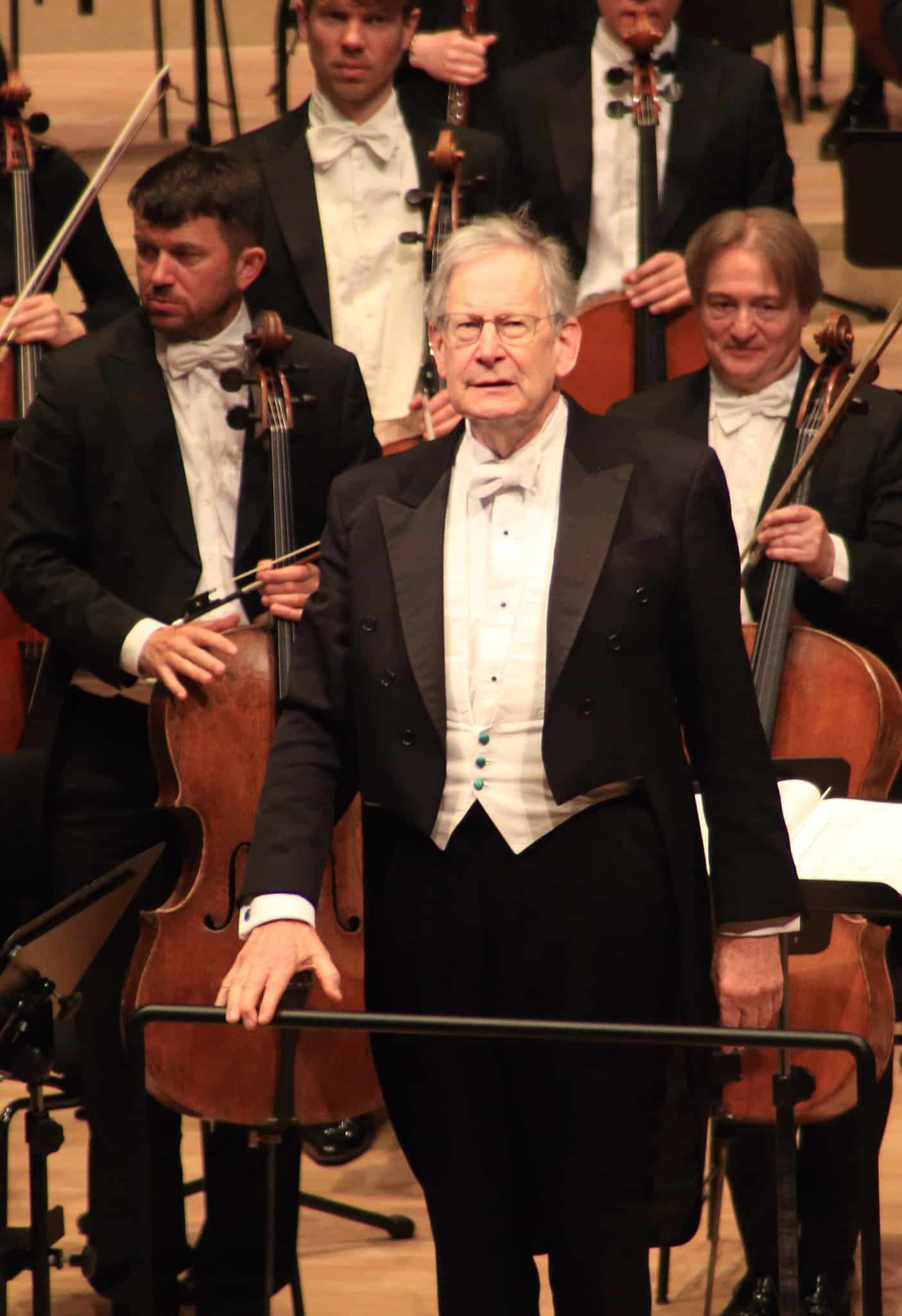
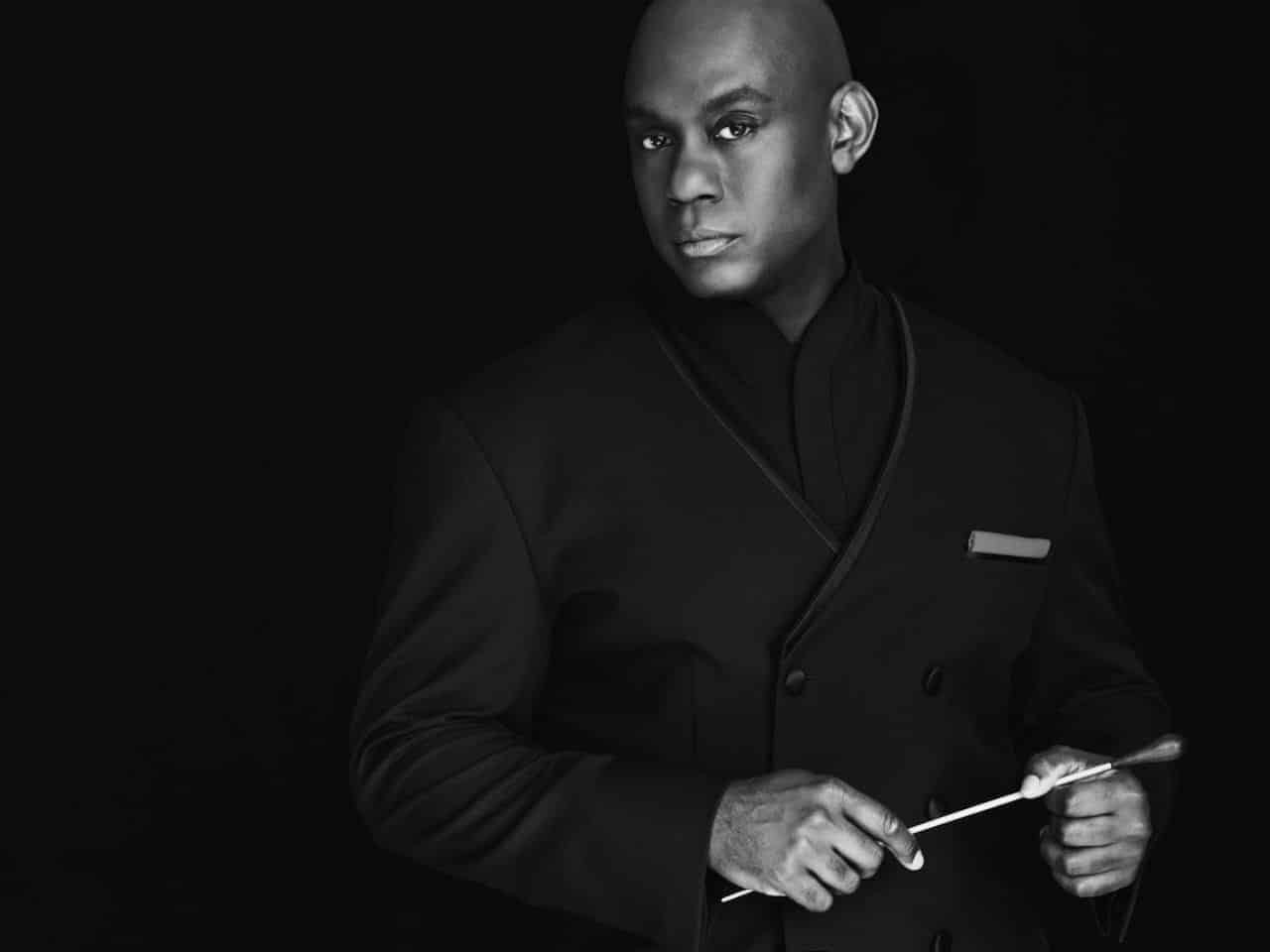
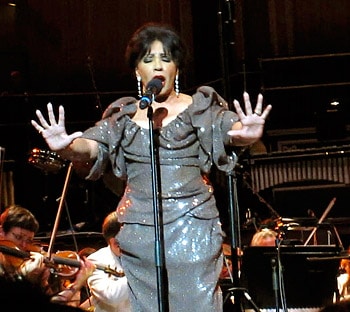
If they only boo at the end when everybody else is presumably drowning them out with applause – little harm done. As long as they can keep quiet until the music is over, I’m not fussed.
Mind though, I remember being told that Robert Hale, who sang a superb Wotan/Wanderer in Vienna under Dohnanyi/Pappano, was very upset after being booed by a couple of opera goers after the Siegfried Premiere.
The way you have written it, one would almost come to believe that Pappano is Dohnanyi’s alter ego. 😉
Nice one. Dohnanyi actually became sick before the Siegfried premiere. Papano substituted at short notice. CvD was back for Götterdämmerung and conducted the entire second run.
Mhhh so here we have a person using the internet to try to control the opinion of an entire community, unafraid of spreading gossip as (aternative) fact, serving private agendas and calling for a “Ban” of sorts.
Mhhhhhh
What an earth are you trying to say?
Totally agree. These are human beings doing their best in a given moment, risking the unexpected every time they perform live, fine artists who’ve worked tirelessly to share their gifts. We can appreciate & criticize them knowledgeably in the service of the artform, but booing them for not being perfect is actually just arrogant & ignorant.
I couldn’t agree more, Norman. It’s just herd mentality and they have no idea what it takes to put on an opera like, particularly Trovatore as you mentioned. It just puts people off and the very singers they should be employing. Artists don’t need that kind of disruptive behaviour, and mercifully we rarely get it here in Britain. They may not like certain productions or singers but that’s not an excuse to disrupt in my book. It’s not after all a football match where people get booed for bad behaviour.
So, Una, we can come to the conclusion , that the key issue is ( you may correct me with the term) educational work ( raising) for children and ( alas) adults …. If one has a certain notion about common ( core) human values that one will never do what some individuals did at the Vienna Opera House. Logically – the starting point is the right set of those values we should transfer to the next generation and environment. Democracy ( or, like some love to use instead of this word “Tolerance”) doesn’t mean all-permissiveness.
P.S. Ironically, I ,personally, is against bans 😉 but , sometimes , I feel like supporting Mr. Trump 😉
…. I AM against …. (slip, beg my pardons)
I was at a production at the Vienna State Opera at the beginning of 2016. The first night I attended the entire cast was greeted with universal praise. I returned for the same opera a couple of days later. The lead soprano was now clearly unwell, with a terrible cold. An announcement to that effect was made at the beginning. I noticed subtle changes in the production that enabled her to keep having sips of water. (You wouldn’t even be aware unless you had already recently seen it, as I had.)
To my utter horror and dismay, when she and the male lead came out for a curtain call at the end of Act One, 2 or 3 loud boos came from the balcony, clearly aimed at her. She looked up, startled and very near tears. It was awful. My heart went out to her. I feared she wouldn’t come back to finish the opera, but she did. I wished someone could have done something then about those ignorant booers.
I was also once startled by the young men in the box next to mine in Pesaro booing the conductor after a Rossini opera. When I went to the stage door afterwards I recognised them, waiting nearby so I went up and tackled them. Their explanation – he wasn’t a Rossini conductor!
Booing is a hateful practice: an expression of hatred. It has no place anywhere, let alone in a concert hall or an opera house. Being booed is something an artist isn’t likely to ever forget. It is traumatic. If you don’t like the performance or the piece-in the case of a work being premiered-just don’t applaud. Silence is more eloquent than booing.
Whoops – that post went wrong! Here it is again with everything in the correct order!
The converse form of audience narcissism is aggressive acclamation. I could have throttled the boor near the microphones for the Met relay of Romeo et Juliette on Radio 3 the other week who foghorned ‘Bravo’ at the end of every number, before the music had died. He made more noise than the rest of the audience put together. I was bracing himself for the variant suffixes of the bravo declension but he went one step further with an endlessly drawn-out ‘braaaaav-eeee-ssss-eeee-moooo’.
His honkings were not, of course, a measured, critical response to artist achievement, but all about getting himself heard on air all over the world, and crude virtue signalling.
It’s all over theatrea and concert halls at the moment, in the form of meaningless standing ovations. I recently (politely) asked a man in front of me who sprang to his feet, clapping above his head, the instant the music stopped at the Barbican to sit down as I couldn’t see the stage and the artists, and I got massive pushback – I had no right to stop him expressing his enthusiasm, he said. Clearly I had affronted his virtue (and implicitly challenged the depth of his critical faculties): his right to expressive himself apparently trumped my right to a view of the artists whom I might, too, have wished to applaud, had I been able to see who I was applauding.
And while I’m here, another thing about audience behaviour. In London theatres (particularly the older ones where sightlines are often compromised) these days, the right to lean forward and block the view of the stage apparently trumps the right of those sitting behind you to the view they also have paid for. I won’t, of course, stand for this, but still bear the scars of a recent encounter when my (invariably polite) request to see the stage was met at the interval by a torrent of abuse for my temerity in whispering my request to this person’s partner.
“The converse form of audience narcissism is aggressive acclamation.”
“His honkings were not, of course, a measured, critical response to artist achievement, but all about getting himself heard on air all over the world, and crude virtue signalling.”
Well said. Glad you pointed that out, and so effectively.
1) “Or beaten up by the chef.”
I see, the Donald Trump school of enforcing social norms.
2) “They have their credit card numbers at the box-office and they know where they sit.”
Yes, I say publish the photos, names, home addresses, telephone numbers of the offenders.
3) “A ban on second.”
Create an Offender Registry, where they are required to stay 500 meters away from any cultural institution or anywhere where artists may congregate.
1) “Or beaten up by the chef.”
I see, the Donald Trump school of enforcing social norms.
No, it’s actually the Gordon Ramsey School of Irascibly Boorish Cooks & Chefs.
On a practical note, I suspect the majority of seats do not have a credit card number associated with them (bookings for two or more seats may only have one card used, or cheque or cash); people do move seats on occasion; and in any case, the task of identifying an occasional lone “boo-er” by seat number accurately in a packed house in low light is not likely to be as straightforward as one might wish.
More philosophically, if booing were outlawed, does this mean we expect every performance, no matter how poor, to be greeted with admiration and adulation? If the only permitted response is enthusiastic applause, doesn’t that diminish the validity of the response, and thus fail to communicate genuine appreciation to the artists anyway?
Ridiculous Opera productions that desecrate the composer’s ideas NEED to be booed. such as the idiotic current NORMA or HANSEL & GRETEL at The Met.
Standing ovations at every Broadway show are mass audience culture without brains or discernment. Selfies en masse are next…
The infamous booing at the Vienna State Opera Il Trovatore, 1993. The Leonora, the courageous and legendary Cheryl Studer, not only had taken over on short notice from Michelle Crider but was suffering from a bad cold on opening night (unannounced from the stage). The Manrico, poor Frederic Kalt, cracked like there was no tomorrow. The claque or claques were in attendance in full force, unhappy with everyone including the production, and determined to get heard. Many in the opera community at the time rejoiced in the calamity. Was the booing merited? Well, no.
Part I: https://youtu.be/6hsJYybqHZ8
Part II: https://youtu.be/o5-jBq0cuTQ
Too bad today’s apologists and bloggers for all manner of opera calamities were not in existence then.
At the Scala in Milan booing and foot stomping by the notorious Loggionisti has been a common practice for years. Roberto Alagna was booed there during a performance of AIDA and stormed out in the middle of the Act. Piotr Beczala vowed never to sing there again after being booed during a production of La Traviata. And while it happens rarely at the Royal Opera, in 2015 there was a large amount of booing for the production team at the opening night of a controversial “William Tell”.
Surely booing preceded regie-theater by centuries. It was a regular feature of at any number of La Scala performances. There is a story about the visit of the Royal Opera to La Scala in the mid-1970s when Janet Baker was singing Vitellia in Clemenza. As her make-up was being applied, there was a knock at the door. The man outside introduced himself as the leader of the claque, pointing out that he had tried to speak to the company manager about the payments due to the claque to ensure their “co-operation” but the person could not be found. So he would be grateful if Dame Janet would make her contribution.
Whether that incident was true or merely operatic legend, a lot of payments certainly passed hands to those in the upper tiers to ensure their continued Bravis or Boos.
As for booing nowadays, I frankly see no problem with it – even though I don’t like it. If I have the freedom to express my admiration through applause and more vocally, I do not think I have a right to request that those less impressed desist from booing. I agree, though, it can go too far, and I recall a performance of Norma with Caballe at the Vienna Staatsoper in 1977 when there was a virtual verbal fight in the auditorium.
“Surely booing preceded regie-theater by centuries.”
Yes, I was thinking the same thing. For better or for worse, Italian audiences have always been known for expressing their opinions noisily. There was a time when the Teatro Regio di Parma was known for having the rowdiest/most passionate (depending on your viewpoint) audience in the world. There is a bootleg recording of a performance of Tosca which very nearly ended in a riot when Corelli refused to give an encore. A bit of booing here or there was just par for the course.
As a student in Vienna in the early 80s, I remember lots of booing. On many occasions I couldn’t explain it judging from the music or the staging: I remember boos against Horst Stein and Otto Schenk. Sometimes it seemed more like a favorite sport.
That said, Regietheater directors are booed with such consistency, over decades, that there may be a reason: how many opera goers really enjoy those productions? Maybe I am projecting my own thoughts, because I am done with Regietheater.
OK, I agree with Norman that booing is wrong, often self indulgent and says more about the person doing the booing than the performance itself. I’m just not sure it would be a good idea to legislate against it. Sure, if negative audience reactions reach Paris Tanhäuser levels it would be time to do something about it ( what are the jockey club up to these days?) but till then why don’t we try giving audiences more opportunity to express feedback in other ways without disrupting performances. Perhaps an sms hotline? As the esteemed Petros Linardos puts it: “I am done with Regietheater”. You wouldn’t have to ask too many audience members before hearing that particular opinion multiple times. In my experience, as a rule the majority of audience members get it absolutely right. Listen to them and the problem will very likely go away.
Yikes, I mean of course Tannhäuser. For shame…
“Daniele Abbado’s fine design team”
Thanks, that one made my day.
For some stage directors, not being booed means their production has failed.
Some of them hire a ‘claque’ for the occasion, to make sure their efforts provoke scandal, being good marketing material. There have been premières by postwar avantgarde composers who organized extensive booing. Sometimes that went wrong, when the audience understood the noises in the hall being part of the work.
On the occasion of the Viennese ‘scandal concert’ in 1913, where not only booing but physical fights broke-out, Mahler tried to calm down a loud-mouthed man at his side who answered: ‘But I also boo at your concerts!’
Viennese booing has been included in the World Heritage List of the UNESCO in 1967 together with Schlagobers and Beethoven’s hair.
I would have loved to have been at that 1913 concert. Mahler would have been dead some 2 years by then!
That´s John B. at “alternative musicology”, a new Washingtonian concept.
I do both serious and alternative musicology, they compensate each other: the first is for thinking, the second for smiling (the second is only functional for people who can make the distinction). Relaxation of the facial muscles releases energy for the skull’s interior functions.
You are right, I had mixed-up with an earlier concert, where also fights in the audience broke-out.
https://en.wikipedia.org/wiki/Skandalkonzert#/media/File:Watschenkonzert_Karikatur_in_Die_Zeit_vom_6._April_1913.jpg
Yes indeed, the anticipation of a scandal can be a very effective PR device and can also be used to adjust the audience’s expectations. In 1995 the Vienna Staatsoper had a new production of Hérodiade directed by Hermann Nitsch. For weeks if not months in advance the press couldn’t stop talking about how an opera production by the famous ‘Skandalkünstler’ was sure to cause a storm of disgust on the opening night. In the event, the production was rather innocuous in style with some stunning visual effects and was greeted with thunderous applause.
Perhaps there is a difference between booing the production and booing the performers
The former might be acceptable, the latter much less so.
A dreadful Scala di Seta at the Opera Comique a few years back when Claudio Desderi brought a young mostly Italian cast was totally wrecked by the addition (who knows why?) of a Handel aria and a Beatles song. The Parisian audience took umbrage at curtain call and the young soprano, who had sung beautifully, was distraught and sobbing her heart out. It was not her fault and it was cruel.
This said, an audience can be cruel without a booing. I remember a Trovatore at La Scala in 1967 : Bergonzi and Cossotto were wonderful, but Gwyneth Jones struggled to reach their heights. Her “D’amor sull’ali rosee” was met , not with boos but complete silence. So was Domingo’s “Celeste Aida” at the Met when I was there in the late 80’s when he did not try to reach the high C which Pavarotti had thrown in the previous season.
Had chance taken me to the first, rather than second, nights of G.Tell and Lucia at the ROH recently it might have been difficult not to join in those who hated the production and booed the director. But unless the director is there to get the point, is it not better to abstain at later performances? Or maybe boo Mr. Holten?
Productions that disregard or disrespect the basic premises of the opera deserve to be booed. If the director’s rationale is “I always wanted to set an opera aboard a submarine, so when they asked me to do ‘Don Giovanni’…” then he deserve to be booed.
I don’t believe in booing singers for doing their best and coming up short. You can’t fault someone for having a cold, or being nervous, or even for accepting a role that’s a little beyond their capabilities — they are at least trying to do things right. I remember reading in Opera News about a production in Italy somewhere (or maybe Sicily), where the audience responded to a famous bel canto aria with total silence.
IMHO it would be much more effective if the audience were to simply stop clapping — but of course that means no one would notice the 12 people who didn’t like the production :-/
(Ha – Robin Worth’s post appeared while I was writing mine. Sorry Robin, I wasn’t copying your ideas 😛 )
I’d kinda like to see a Don Giovanni set in a submarine. With all the torpedoes and missiles in their tubes and periscopes going up and down and all the surfacing and diving Wieland Wagner would have had a symbolism field day.
Booing can have unexpected consequences. I almost lost my PA when she boo’d an elephant in the zoo who had refused her peanut, and threatened to jump over the fence.
I don’t feel it is right to boo singers (sit on your hands) but the Covent Garden William Tell deserved every decibel, and achieved the desired effect. The production was adjusted, the director came back and tried harder with his next production, and Mr Holten was cleverly engineered out soon after.
Not everybody in Vienna books tickets online and when people pay ‘cash only’ for their standing room tickets (around 560 are sold on the day of the show), they don’t have to give their name. The standing room is the home of most notorious ‘boo-ers’. Sometime they get it wrong, sometimes management does and the audience reflects that. I would never boo and am strictly against it, but still oddly relieved that your plan to censor opinions in Vienna is doomed to fail.
I have no problems with booing or even inter-movement applause, though I acknowledge that such behavior can throw off the performers. My pet peeve is the early applauders whose premature ejaculations can spoil the best efforts by the performers, over minutes or hours, to establish a particular mood or effect by the end of a work. I wish the Seinfeld show were still around to deal with the early applauders like it dealt with close talking.
Then there are those pieces whose effects, in a superb performance, should be to inhibit any kind of demonstration, positive or not. You should be devastated into silence after Mahler 9, Tchaikovsky 6 and Wozzeck, to name just three. I’m sure that SD readers can come up with more.
I remember Otto-Werner Mueller once relating having had the disheartening experience of conducting a near perfect performance (and he had the highest standards) only to turn around at the end to see someone in the second row picking his nose. I kind of wish there was a booing prerogative for performers.
In the middle of the last movement of Beethoven’s 9th, there is a big fermata, followed by a Grand Pause, followed by the Turkish March section. We had an audience member scream out “yeeeee-haw!” in that pause, followed by general laughter… followed by the rest of the piece. No lasting harm was done, except to the poor grand pause.
Anyway, I remember a long and magical silence at the end of a performance of Mahler #4 at the Oregon Coast Music Festival in about 2006. Not a famous orchestra/ conductor/ soloist/ venue, but it was kind of wonderful.
That’s because the ending of Mahler 4 is such a sublime stroke of genius- A perfect silence!
Agreed; but I have performed it several times and that was the only time this happened :-/
Oscar Levant used to tell the story of Isaac Stern preparing to rehearse the Tchaikowsky Violin Concerto with Fritz Reiner on the podium. Reiner supposedly said “This piece stinks!” to which Stern replied “Write one better!”. One might say the same to the moron booing from the anonymous comfort of a darkened house. “Sing it better!”
While I agree with some points mentioned by NL, I sense that he is proposing to create the Booing Police.
Typical reaction from Europeans. In one hand, we have this European mentality (FWIW, Britain is Europe) and Donald Trump. I am in the middle…
No, not booing police. More like asking audiences to be adults behaving in an adult manner.
Did you read the article? He is suggesting that opera houses should use ticket holders’ contact details to take action against booers.
Also excessively loud Bravos and Bravas can be annoying. A recent relay of Romeo et Juliette from the Met was spoiled a bit for me by someone with a very load voice exclaiming Bravo or Brava after arias.
If it is the production that one does not like, then one should reserve one’s booing for when the director comes on stage to take his own curtain call.
Or, of course, for when he refuses to do so.
I am reminded of a certain concert, involving a newly composed piece for soloist and orchestra, where there was polite, respectful applause – not particularly loud, but at least continuous – while the soloist and conductor took their bows after the piece: then the composer came on to the podium to take a bow himself… There were a few scattered boos, but the most noticeable thing was that the applause died to a trickle as he took his bow, and was almost down to silence before he walked off stage… And then the moment he was offstage, it started up again, with a roar of applause for the orchestra. The soloist and conductor returned for a second bow: the composer did not…
Perhaps if one is not pleased with a performance, or that of a particular singer, maybe he/she might think about refraining from applause, leaving the hall immediately and getting a head start on their way home.
How exactly are these the 4 best singers in the world? I found the performance subpar, frankly. No one has a good compass for pitch and the voices are thready and worn and old sounding, including Netrebko’s. Not to mention povero Alagna’s. And this hack, Armiliato, is puzzling. How is he getting gigs? I have not heard such shapeless conducting at a major house. What a fraud this Italian is. The performance of 5 February is here for listening. Judge for yourselves.
http://www.lasplendidanetrebko.com/
Agree about the singers but not Armiliato. He has an encyclopædic knowledge of the repertoire and is generally extremely singer-friendly.
Times and habits change. When opera still going strong, ongoing and audible audience reaction (positive and negative, moment by moment) was part of the process and was expected. Was just reading a late 19th-century critic who chided the audience for applauding only at the end of “Cielo e mar” when (according to him) the conclusion of the first verse had been so much better. Encores for Erda’s Warning, encores for individual solos within an ensemble, vocal disapproval of scenic mishaps, un-liked pieces, out-of-tune singing, etc. etc. ad inf….all this was part of what newspapers reported when they described the success or otherwise of an evening in the theater. MAYBE this all means opera was no good in the 19th century and became good only when people turned polite and treated it like a Sunday morning service….
I agree that booing has receded so far from general acceptance that by now it seems cruel to inflict it on a singer who is probably already suffering. One has to go with the times. But I am not sure this is a really a change for the better.